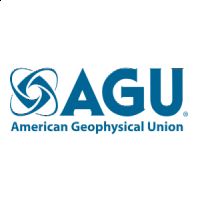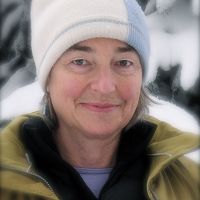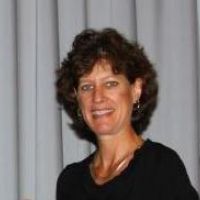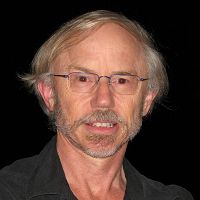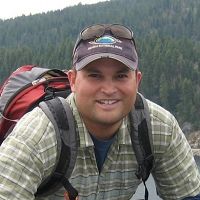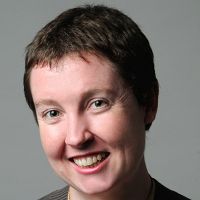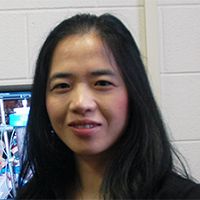AGU Abstracts due August 3: List of CZ Sessions
EXPIRED OPPORTUNITY
24 Jul 2016
News Source: AGU Fall Meeting 2016
AGU 2016 sessions related to CZ science. Submit your abstract by August 3.
EP032: The Architecture and Workings of Earth’s Critical Zone
Session ID#: 13939
Session Description:
The layers of earth materials and organisms at the Earth’s surface behave as a distinct entity- the critical zone, and fundamentally differ from rock below and atmosphere above. Although thin on a planetary scale, the critical zone is substantive for the living systems it supports, and significant in modulating the flows of water and sediment to rivers and the sea. Dynamic interfaces at the top of the vegetation canopy, the ground surface, and at the deep transition to unweathered materials vary spatially, and co-evolve, forming the template on which hydrologic and ecologic processes occur. Presentations in this session will highlight advances in 1) exploration of the architecture of critical zone and the processes that shape its structure, 2) interactions between organisms and the substrates they live on, and 3) analysis of spatial and temporal variations in water, energy, and biotic activity in the critical zone.
Primary Convener: Suzanne P Anderson, University of Colorado at Boulder, INSTAAR and Geography, Boulder, CO, United States
Conveners: Susan L Brantley, Earth and Environmental Systems Institute, Penn State, Univ. Pk, PA, United States and William E Dietrich, University of California Berkeley, Berkeley, CA, United States
Cross-Listed: B - Biogeosciences | H - Hydrology | NS - Near Surface Geophysics
Index Terms:
0439 Ecosystems, structure and dynamics [BIOGEOSCIENCES]
1039 Alteration and weathering processes [GEOCHEMISTRY]
1813 Eco-hydrology [HYDROLOGY]
1824 Geomorphology: general [HYDROLOGY]
H024: Critical biogeochemical processes in the unsaturated zone
Session ID#: 13704
Session Description:
Unsaturated soil zone (i.e., the vadose zone) is a critical zone of complex and intertwined physical, chemical and biological processes that collectively shape the dynamic soil processes. There is an increasing need to cross the disciplinary boundaries of soil physics, chemistry and biology in order to advance fundamental and applied knowledge on processes that govern soil health, soil carbon dynamics, water and solute transport, contaminant bioavailability, rhizosphere processes, etc. These microscale processes are operative at a wide range of time scales, and drive macroscale phenomena that are important for soil carbon sequestration, sustainable crop production, environmental remediation, and water quality protection. We are seeking for contributions that link biophysical and biochemical processes in the unsaturated soil zone to assess its ecosystem function and services. Short-term laboratory experiments and long-term field studies at soil pore, interfacial, column, field, or watershed scales are all welcomed.
Primary Convener: Wei Zhang, Michigan State University, East Lansing, MI, United States
Conveners: Tammo S Steenhuis, Cornell University, Ithaca, NY, United States and Gang Wang, China Agricultural University, Beijing, China
Cross-Listed: B - Biogeosciences
Index Terms:
0409 Bioavailability: chemical speciation and complexation [BIOGEOSCIENCES]
0416 Biogeophysics [BIOGEOSCIENCES]
1852 Plant uptake [HYDROLOGY]
1875 Vadose zone [HYDROLOGY]
B082: The impacts of water limitation on terrestrial ecosystems and catchments: integrating measurements and models across scales
Session ID#: 13596
Session Description:
This session presents diverse methods to understand and predict impacts of water limitation on terrestrial cycling of water, energy, and biogeochemicals. Global-scale studies suggest that water-limited regions dominate the increasing trend of the terrestrial CO2 sink and the interannual variability of atmospheric CO2, and that water limitation affects most terrestrial biomes. Research shows terrestrial processes are increasingly sensitive to water due to vegetation change or CO2 fertilization, while other work suggests nutrient constraints. Comparatively little is known about water limitation of non-CO2 gases and other ecohydrological processes. We encourage submissions that show how combining models and observations can represent processes across spatial scales (e.g. soil collar, leaf, ecosystem, catchment, continent) or leverage longer-tem datasets to address questions across times scales including: 1) fast ecohydrological responses to weather, 2) interannual variability, 3) response to extreme events, and 4) multi-year trends (e.g. in response to changing temperature, precipitation patterns, or [CO2]).
Primary Convener: Joel Biederman, Agricultural Research Service Tucson, Tucson, AZ, United States
Convener: David E Reed, University of Wisconsin Madison, Madison, WI, United States
Cross-Listed: H - Hydrology
Index Terms:
0414 Biogeochemical cycles, processes, and modeling [BIOGEOSCIENCES]
0426 Biosphere/atmosphere interactions [BIOGEOSCIENCES]
1812 Drought [HYDROLOGY]
1813 Eco-hydrology [HYDROLOGY]
H082: Preferential flow and transport across scales in the Critical Zone
Session ID#: 13942
Session Description:
Preferential flow is a fundamentally important hydrologic process in soils and landscapes that controls a variety of physical, chemical, and biological functions in the Critical Zone. Numerous studies over the past decades have demonstrated the nearly universality of preferential flow and transport in the field across space and time. However, the lack of systematic theory and the existence of conceptual and technological bottlenecks continue to hinder the advancement of preferential flow modeling and prediction. This session welcomes new developments and novel experimental and modeling efforts that shed new light on preferential flow occurrence frequency, organizing principle, flow configuration, pattern prediction, boundary condition, and the link to biogeochemical dynamics and ecological functions in the Critical Zone.
Primary Convener: Hangsheng Lin, Pennsylvania State University Main Campus, University Park, PA, United States
Conveners: Li Guo, Pennsylvania State University Main Campus, University Park, PA, United States, Heather E Gall, Pennsylvania State University Main Campus, Department of Agricultural and Biological Engineering, University Park, PA, United States and Gavan Sean McGrath, University of Western Australia, Crawley, WA, Australia
Co-Organized with: Hydrology, and Biogeosciences
Cross-Listed: B - Biogeosciences | EP - Earth and Planetary Surface Processes | NG - Nonlinear Geophysics | NS - Near Surface Geophysics
Proposed Co-Organized Session with: B - Biogeosciences
Index Terms:
1804 Catchment [HYDROLOGY]
1847 Modeling [HYDROLOGY]
1865 Soils [HYDROLOGY]
1875 Vadose zone [HYDROLOGY]
H070: Modeling the Critical Zone: Integrating processes and data across disciplines and scales
Session ID#: 13129
Session Description:
The Critical Zone (CZ), the Earth’s living skin where climate, geology and human activities converge, is under unprecedented stress from interacting effects of climate and land use change. The evolution and function of the CZ are governed by multiple processes (e.g. meteorological, hydrological, geochemical, geomorphological, and biological) over a wide range of temporal and spatial scales. This session aims to showcase contributions that highlight recent model development and applications in the CZ. We invite abstracts that: 1) demonstrate the synergy between field and experimental efforts; 2) elucidate underlying processes at and across multiple scales; 3) reveal new understanding about the CZ response to changing climate and land use; and 4) synthesize data from or test hypotheses across multiple study sites. The session is intended to serve as a multi-disciplinary exploration of the breadth of CZ science. We encourage submissions from modeling endeavors within and across disciplines.
Primary Convener: Li Li, Pennsylvania State University Main Campus, John and Willie Leone Family Department of Energy and Mineral Engineering, University Park, PA, United States
Conveners: Alejandro N Flores, Boise State University, Boise, ID, United States, Harry Vereecken, Forschungszentrum Julich GmbH, Julich, Germany and Sally E Thompson, University of California Berkeley, Civil and Environmental Engineering, Berkeley, CA, United States
Co-Organized with: Hydrology, and Biogeosciences
Cross-Listed: A - Atmospheric Sciences | B - Biogeosciences | EP - Earth and Planetary Surface Processes | GC - Global Environmental Change
Proposed Co-Organized Session with: B - Biogeosciences
Index Terms:
0414 Biogeochemical cycles, processes, and modeling [BIOGEOSCIENCES]
0486 Soils/pedology [BIOGEOSCIENCES]
1847 Modeling [HYDROLOGY]
1902 Community modeling frameworks [INFORMATICS]
News Source:
READ MORE from AGU Fall Meeting 2016 >>
News Category:
RESEARCH |
OPPORTUNITIES
People Involved
CZO
-
Boulder, INVESTIGATOR
-
National, Eel, Luquillo, Shale Hills, INVESTIGATOR, COLLABORATOR
-
Eel, INVESTIGATOR
-
Reynolds, INVESTIGATOR
-
Shale Hills, INVESTIGATOR
-
Eel, INVESTIGATOR
-
Shale Hills, INVESTIGATOR
Explore Further
